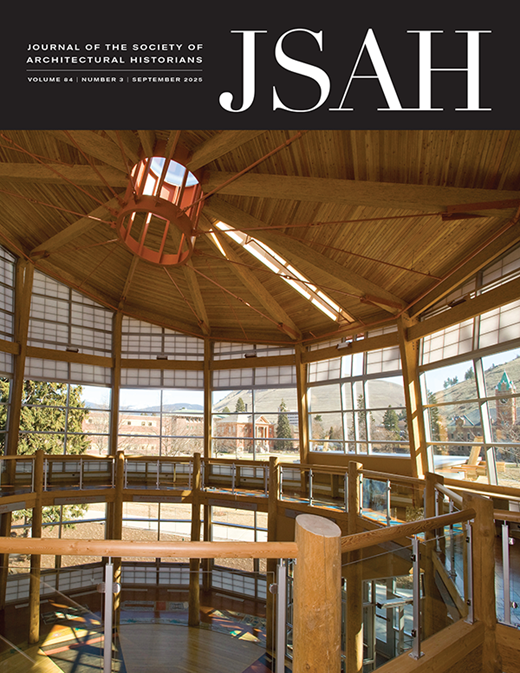-
Membership
Membership
Anyone with an interest in the history of the built environment is welcome to join the Society of Architectural Historians -
Conferences
Conferences
SAH Annual International Conferences bring members together for scholarly exchange and networking -
Publications
Publications
Through print and digital publications, SAH documents the history of the built environment and disseminates scholarship -
Programs
Programs
SAH promotes meaningful engagement with the history of the built environment through its programs -
Jobs & Opportunities
Jobs & Opportunities
SAH provides resources, fellowships, and grants to help further your career and professional life -
Support
Support
We invite you to support the educational mission of SAH by making a gift, becoming a member, or volunteering -
About
About
SAH promotes the study, interpretation, and conservation of the built environment worldwide for the benefit of all
SAH Announces Incoming Board Members for 2021
Jan 11, 2021
by
SAH News
The Society of Architectural Historians will elect two new officers and five new directors to the SAH Board in April 2021. Proxy ballots have been sent via email to SAH members. The new directors will serve three-year terms that expire in 2024.
The following individuals will be newly elected to the SAH Board in 2021:
Eliana Abu-Hamdi
Mohammad Gharipour is professor and director of the Architecture Graduate Program at the School of Architecture and Planning at Morgan State University in Baltimore, Maryland, USA. He obtained his master’s in architecture from the University of Tehran and his PhD in architecture at Georgia Institute of Technology, USA. He has received many grants and awards including the Hamad Bin Khalifa Fellowship in Islamic Art (2007), the Spiro Kostof Fellowship Award from the Society of Architectural Historians (2008), National Endowment in Humanities (2015), Fulbright-Hays (2016), Foundation for Landscape Studies (2016), Council of Educators of Landscape Architecture (2016), National Institute of Health (2017 and 2020), American Institute of Architects (2018), and Fulbright (2019).
The following individuals will be newly elected to the SAH Board in 2021:
Officers
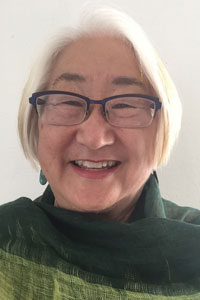 Lynne Horiuchi – SAH Secretary
Lynne Horiuchi – SAH Secretary
Lynne Horiuchi is an independent scholar who received her Ph.D. in 2005 from the University of California at Santa Barbara. She has published numerous articles on the built environments of Japanese American incarceration. Race, space, architecture and ethics are her theoretical interests crossing over into Asian American studies, art history, vernacular architecture, urban planning, and critical race studies. She has co-edited a volume with Tanu Sankalia Urban Reinventions: San Francisco’s Treasure Island that examines the complete transformations of a man-made island for a world exposition, a military base, and a new neighborhood in San Francisco. She is co-writing with Anoma Pieris a volume on imprisonment during World War II from Singapore to North America, The Architecture of Confinement: Incarceration Camps of the Pacific War. She is completing a volume, Dislocations and Relocations: The Planning, Design, and Construction of Prison Cities, that interrogates the relationships between architecture, and vernacular building and military design and construction. She has received numerous awards including NEH grants, a Civil Liberties Public Education Fellowship and was named a National Endowment for the Arts MacDowell Fellow. She has taught at the University of North Carolina in the Department or Architecture and she is currently developing a course on race, redevelopment, and gentrification for the Future Histories Lab at the University of California at Berkeley. She has served on the Board of the Rosie of the Riveter Trust and numerous other community organizations and committees. She is a long-time member of SAH, participating in conferences, panels, and roundtables and is currently the co-chair of the SAH Minority Scholars Affiliate Group.
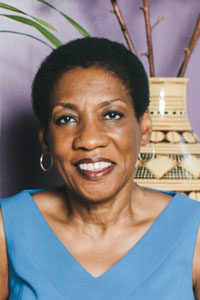 Roberta Washington, FAIA, NOMAC – SAH Treasurer
Roberta Washington, FAIA, NOMAC – SAH Treasurer
As principal of Roberta Washington Architects, PC, Roberta Washington is responsible for the design of new and rehabilitated schools, housing projects, health care facilities, cultural centers, and historic properties. Projects include the African Burial Ground Interpretive Center in Lower Manhattan, Barnard School—New Haven, Connecticut’s first LEED Gold elementary school, Public School 971K in Brooklyn, and the restoration/renovation of the People’s Republic of Haiti’s Washington, DC, Embassy. Since 2001, she has also researched, written and lectured about the history of black architects—primarily in New York State—and the history of black women in architecture in the U.S. Her biographies appear in the Biographical Dictionary of African-American Architects, 1865–1945 and the BWAF’s Pioneering Women of Architecture website. Washington is a past president of the National Organization of Minority Architects (NOMA), a past commissioner of the New York City Landmarks Preservation Commission and a co-curator of the Now What?! Advocacy, Activism, and Alliances in American Architecture since 1968 traveling exhibition. She is also a Fellow of the AIA, a member of the NOMAC Council and is the treasurer of the NOMA Foundation. Washington received a Bachelor of Architecture degree from Howard University and a M.S. Architecture degree (in Hospital and Health Facility Design) from Columbia University. Since 2018, she has also been a board member of Save Harlem Now, a local historic preservation support committee.
Directors
Eliana Abu-Hamdi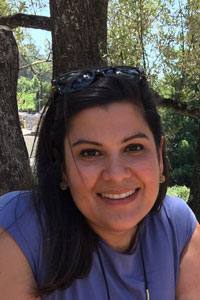
Eliana Abu-Hamdi, PhD, is currently the program manager for the Global Architectural History Teaching Collaborative (GAHTC) in the History, Theory and Criticism Department at MIT, as well as an adjunct assistant professor at Hunter College, CUNY, in the Department of Political Science, teaching courses on Global Poverty and the Ethics of Development, the History of Urbanism and Urban Policy and Planning in the U.S. She is an architectural historian, urbanist, designer and Middle Eastern/Global South scholar with published articles the International Journal of Islamic Architecture, Traditional Dwellings and Settlement Review, Cities, Buildings and Landscapes, and The Middle East Report. She also has contributed chapters in a volume on urban governance in the Middle East, and another on social housing in the Middle East. She is actively developing her manuscript for submission to Cambridge University Press. Abu-Hamdi received her PhD and Master of Science degrees in architectural history from University of California, Berkeley with a designated emphasis in Global Metropolitan Studies.
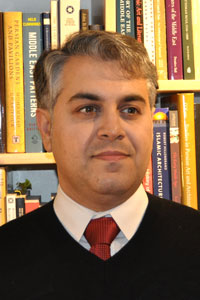 Mohammad Gharipour
Mohammad Gharipour
Mohammad Gharipour is professor and director of the Architecture Graduate Program at the School of Architecture and Planning at Morgan State University in Baltimore, Maryland, USA. He obtained his master’s in architecture from the University of Tehran and his PhD in architecture at Georgia Institute of Technology, USA. He has received many grants and awards including the Hamad Bin Khalifa Fellowship in Islamic Art (2007), the Spiro Kostof Fellowship Award from the Society of Architectural Historians (2008), National Endowment in Humanities (2015), Fulbright-Hays (2016), Foundation for Landscape Studies (2016), Council of Educators of Landscape Architecture (2016), National Institute of Health (2017 and 2020), American Institute of Architects (2018), and Fulbright (2019).
In addition to publishing papers and reviews, he has authored and edited eleven books including the following: Persian Gardens and Pavilions (I.B. Tauris, 2013), Synagogues of the Islamic World (Edinburgh University Press, 2017), and Gardens of Renaissance Europe and the Islamic Empires (Pennsylvania State University Press, 2017). His forthcoming edited volume, Health and Architecture: The History of Spaces of Healing and Care in the Pre-Modern Era, is under publication by Bloomsbury Press. Dr. Gharipour is the director and founding editor of the International Journal of Islamic Architecture (IJIA) and co-founder of Epidemic Urbanism Initiative.
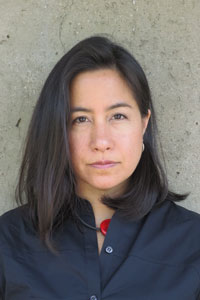 Ana María León
Ana María León
Ana María León is an architect and a historian of objects, buildings, and landscapes. Her research and teaching examines the modernity of the Americas and its transcontinental flows. She studies how different publics relate to each other through spatial practices and discourses of power and resistance. León holds a PhD from HTC Architecture at MIT and is assistant professor at the University of Michigan. She is co-founder of several collaborations laboring to broaden the reach of architectural history including Detroit Resists, the Decolonizing Pedagogies Workshop (DPW), the Settler Colonial City Project (SCCP), and Nuestro Norte es el Sur. Her book, Modernity for the Masses: Antonio Bonet’s Dreams for Buenos Aires will be published at University of Texas Press in March 2021.
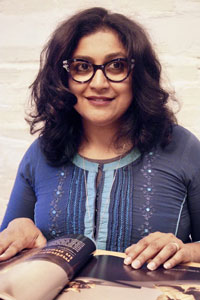 Anooradha Iyer Siddiqi
Anooradha Iyer Siddiqi
Anooradha Iyer Siddiqi (she/her/hers) specializes in histories of architecture centering African and South Asian questions of historicity and archives, heritage politics, and feminist and colonial practices. Her scholarship expands histories of marginalized people and figures and promotes practices of collaboration and support, especially to foreground the lives and narratives of communities that have been systematically excluded or silenced. Her book manuscript Architecture of Migration: The Dadaab Refugee Camps and Humanitarian Settlement analyzes the history, visual rhetoric, and spatial politics of the Dadaab refugee camps in Northeastern Kenya, as an epistemological vantage point in the African and Islamic world. Drawing from many years of historical, ethnographic, and visual research in East Africa, South Asia, and Europe, it attempts to move beyond ahistorical representations of camps and their inhabitants, finding long migratory and colonial traditions in the architecture, spatial practices, material culture, and iconography of refugees and humanitarians. Her book manuscript Minnette de Silva and a Modern Architecture of the Past engages the intellectual and heritage work of one of the first women to establish a professional architectural practice and an important cultural figure in the history of Ceylon/Sri Lanka. Her writings appear in several peer-reviewed and critical journals and she received the 2019 SAH Founders’ Award for her JSAH article “Architecture Culture, Humanitarian Expertise: From the Tropics to Shelter, 1953-1993.” Her work has been supported by the Social Science Research Council, the Graham Foundation, the Fulbright Foundation, the American Institute of Indian Studies, and the Barnard College Presidential Research Award. She directs the Columbia University Center for the Study of Social Difference working group, Insurgent Domesticities, and is co-chair for the Columbia University Seminar, Studies in Contemporary Africa.
 Ipek Türeli
Ipek Türeli
Ipek Türeli is an associate professor and Canada Research Chair in Architectures of Spatial Justice at the Peter Guo-hua Fu School of Architecture at McGill University. Her recent research interests include low-income housing and participatory design, civil protest and urban design, and campus landscapes and race. Her work on campus landscapes has received support from the Social Sciences and Humanities Research Council (SSHRC), Fonds de recherche du Québec – Société et culture (FRQSC), and Canada Foundation for Innovation. She has many publications on visualizations of the city in photography, film, exhibitions, and museums. Her research on Istanbul was awarded several fellowships and grants including that by the Graham Foundation. Her publications include the co-edited book Orienting Istanbul (2010) and authored book Istanbul Open City (2018). Previously, she was an Andrew Mellon Postdoctoral Fellow at Brown University, where she was the recipient of a Teaching Award for her use of field-work based digital storytelling as an educational tool in architectural history seminars. She received her PhD in architecture from the University of California, Berkeley. She holds professional degrees in architecture, a BArch (Mimar) from Istanbul Technical University and the AA Diploma from the Architectural Association, School of Architecture in London.
The full slate of officers and directors proposed for election in April 2021 follows.
Officers to serve a one-year term (April 2021–May 2022)
Victoria M. Young, University of St. Thomas, President
Patricia A. Morton, University of California, Riverside, First Vice President
Carla Yanni, Rutgers University, Second Vice President
Lynne Horiuchi, Independent Scholar, Secretary
Roberta Washington, Roberta Washington Architects, PC, Treasurer
Michael Gibson, Greenberg, Whitcombe, Takeuchi, Gibson & Grayver, Asst. Treasurer
Directors to serve a three-year term (April 2021–April 2024)
Eliana Abu-Hamdi Murchie, MIT/GAHTC
Mohammad Gharipour, Morgan State University
Ana María León, University of Michigan
Anooradha Iyer Siddiqi, Barnard College
Ipek Türeli, McGill University
Nominating Committee:
Arijit Sen, University of Wisconsin-Milwaukee, Chair
Christy J. Anderson, University of Toronto
Joseph L. Clarke, University of Toronto
Zeynep Kezer, Newcastle University
Patricia A. Morton, University of California, Riverside

